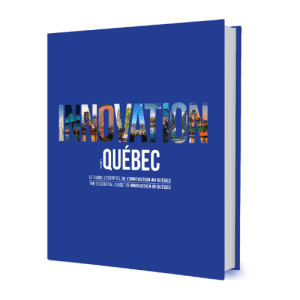Associate to the President & Chief Executive Officer, Pole of Innovation, Artificial Intelligence and Projects in Health, Executive Office, CHUM Member of the Board of Directors, Conseil de l’innovation du Québec (CIQ). Member of the Board of Directors, Health Innovation District. Health Professional Researcher, Innovation Hub Axis, CRCHUM. Associate Professor, Department of Entrepreneurship and Innovation, HEC Montréal.
The health care offer must also evolve to meet these needs. Innovating is to say to ourselves daily: how can I better meet the needs of patients, citizens or workers in our communities and improve their lives? This question applies regardless of the industry sector in which one works.
When I started my career as a speech-language pathologist, I quickly saw the power of knowledge and innovation generated by research or change in behaviors that, when translated into practice, improve patient health. At the time, I didn’t know that this was innovation: bringing about sustainable improvement, either incremental or disruptive, to create tangible value for patients, workers and communities.
Innovation can come from changes in practices, technologies or research by people working on the ground, as at the CHUM, or by local communities and entrepreneurs, as at the Health Innovation District, who are closest to local challenges. As a member of the Quebec Innovation Council, I have seen excellent regional innovations by entrepreneurs who are finding new ways to address their local challenges.
Just a Quick Note:
InnovationsOfTheWorld.com has partnered with Trade License Zone (TLZ) to support global innovators looking to expand internationally. Take advantage of the UAE’s Free Zones—enjoy streamlined setup, low corporate taxes, and a strategic gateway to the Middle East and beyond.
Get Your UAE Free Zone License Fast & Easy!Moreover, open innovation, beyond disciplinary, organizational, and country silos, is also inevitable as today’s problems are increasingly complex. For example, labor and talent shortages will not diminish. How can manufacturing industries or the healthcare network think beyond their organizations to share talent?
What about data and artificial intelligence (AI)? Data describes the needs, characteristics, preferences of people or how an organization works. We cannot innovate without data because innovation responds to needs. Therefore, every organization must have a data strategy to understand its customers and its environment to improve it through artificial intelligence models that allow, for example, an optimization of resources or an early diagnosis or treatment.
To bring people to innovate, a strong innovation culture and capacity by the actors of our society is key. This starts with a personal and collective commitment to improve people’s lives and change the world, one action at a time, at one’s own level. This is my personal motive. A commitment from Quebecers to say to themselves daily, how can I improve the Quebec of today and prepare for tomorrow? Together, let’s innovate to improve our communities.














